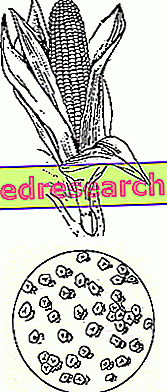
Some argue that certain foods such as lemon or grapefruit or green coffee etc can promote body weight loss. Sometimes these beliefs are based on interesting chemical and biological principles; in other cases, they represent real "fairy tales".
For example, in the 90s the rumor circulated that the acids of certain citrus fruits could facilitate weight loss thanks to their solvent effect on fats; a real fandonia.
However, as far as lemon is concerned, some researchers have made an interesting discovery. To be clear, the study was carried out on mice and not on humans; this is a very important detail because, if it is true that the two species share a large part of the genetic heritage, it is equally true that many drug interactions are completely different between one and the other organism.
In this case, then, it is not lemon juice but skin extracts, rich in polyphenols (antioxidant molecules) and with very few organic acids.
The study dates back to 2008 and is entitled " Lemon Polyphenols Suppress Diet-induced Obesity by Up-Regulation of mRNA Levels of the Enzymes Involved in Beta-Oxidation in Mouse White Adipose Tissue ".
The aim was to evaluate the effect of the polyphenols contained in the lemon peel:
On diet-induced obesity with a high fat content
On the regulation of genetic expression in lipid metabolism.
The sample consisted of mice, which were divided into three groups and fed for 12 weeks with:
A low-fat diet (LF)
A diet high in fat (HF)
A high-fat diet supplemented with 0.5% polyphenols from lemon peel (LP).
It was found that the group of mice that took lemon polyphenols underwent a significant reduction in: weight gain, increase in panniculus adiposus, development of hyperlipemia, development of hyperglycemia and development of insulin resistance.
In the LP group, the supplement with lemon peel polyphenols increased the level of mRNA due to the proliferation of peroxisome activated receptor-alpha (PPARa) in the liver compared to the LF and HF groups in the liver.
Furthermore, compared to the LF group but not to the HF group, in mice with LP the mRNA level for acyl-CoA oxidase (ACO) of the liver and white adipose tissue increased.
The diet enriched with lemon polyphenols has therefore suppressed the increase in weight and body fat thanks to the increase in the peroxisomal expression of PPARa and ACO in the liver and white adipose tissue.



